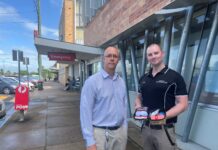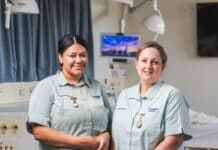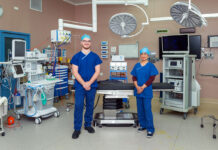The Bundaberg Health Services Foundation has continued to support Bundaberg Hospital with donations for medical equipment and professional training.
The Foundation's 2017-18 annual report reveals the purchase of non-government funded equipment and hospital support projects worth $42,843, nurse training $9920 and Rotary Lodge $29,808.
The organisation runs Thirst Aid Cafe, where turnover continued to grow and a record daily taking of $4280 was achieved.
“Without the support from community donations, fundraising events and funding applications, the Foundation's objectives to support health services could not have been achieved,” the annual report says.
“The Foundation relies heavily on the fundraising support of local donors, community-run events and funding applications to help provide the dollars for us to support our local hospital and patients.
“Our second High Tea Fundraiser raised $4878 for the Palliative and Rehabilitation Unit (PARAS) and the Two Cent Sale returned $7088.
“Various raffles and barbecues throughout the year also contributed to fundraising achievements.
“We were very grateful to receive a donation of a car from Gary Rodgers Motorsports. Their support for a local driver and community was very generous.”
Volunteers thanked for support
Board chair Daryl Cope thanked staff, board members and volunteers for their support.
In his report, Mr Cope said the Foundation awarded Winnie May Scholarships to the value of $5000 for two nurses to complete studies.
The Melanie Robinson Midwifery Award of $2000 was presented to a nurse to complete her training as a lactation consultant.
The Yvonne Male Palliative Care Award funded two nurses at $1000 each to attend the Cancer Nursing Society of Australia annual congress.
In his report, Mr Cope praised volunteers who drive the Foundation's six-seater golf cart.
“As the Bundaberg Hospital campus continues to expand, particularly with the Oral Health and Cancer Care Unit some 1.5km from the main hospital entrance, the need to support patients and visitors who have mobility difficulties has been clearly identified,” he said.
“This year (2017-18) 10,557 passengers have been transported.”







